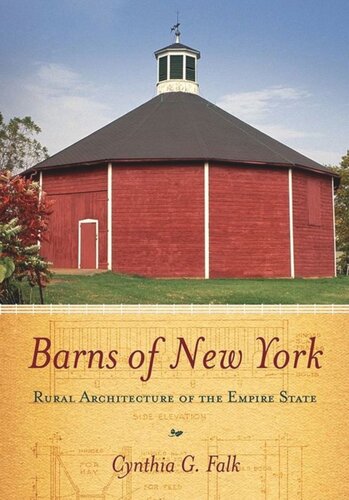

Most ebook files are in PDF format, so you can easily read them using various software such as Foxit Reader or directly on the Google Chrome browser.
Some ebook files are released by publishers in other formats such as .awz, .mobi, .epub, .fb2, etc. You may need to install specific software to read these formats on mobile/PC, such as Calibre.
Please read the tutorial at this link: https://ebookbell.com/faq
We offer FREE conversion to the popular formats you request; however, this may take some time. Therefore, right after payment, please email us, and we will try to provide the service as quickly as possible.
For some exceptional file formats or broken links (if any), please refrain from opening any disputes. Instead, email us first, and we will try to assist within a maximum of 6 hours.
EbookBell Team

4.1
90 reviewsBarns of New York explores and celebrates the agricultural and architectural diversity of the Empire State—from Long Island to Lake Erie, the Southern Tier to the North Country—providing a unique compendium of the vernacular architecture of rural New York. Through descriptions of the appearance and working of representative historic farm buildings, Barns of New York also serves as an authoritative reference for historic preservation efforts across the state.Cynthia G. Falk connects agricultural buildings—both extant examples and those long gone—with the products and processes they made and make possible. Great attention is paid not only to main barns but also to agricultural outbuildings such as chicken coops, smokehouses, and windmills. Falk further emphasizes the types of buildings used to support the cultivation of products specifically associated with the Empire State, including hops, apples, cheese, and maple syrup.Enhanced by more than two hundred contemporary and historic photographs and other images, this book provides historical, cultural, and economic context for understanding the rural landscape. In an appendix are lists of historic farm buildings open to the public at living history museums and historic sites. Through a greater awareness of the buildings found on farms throughout New York, readers will come away with an increased appreciation for the state's rich agricultural and architectural legacy.